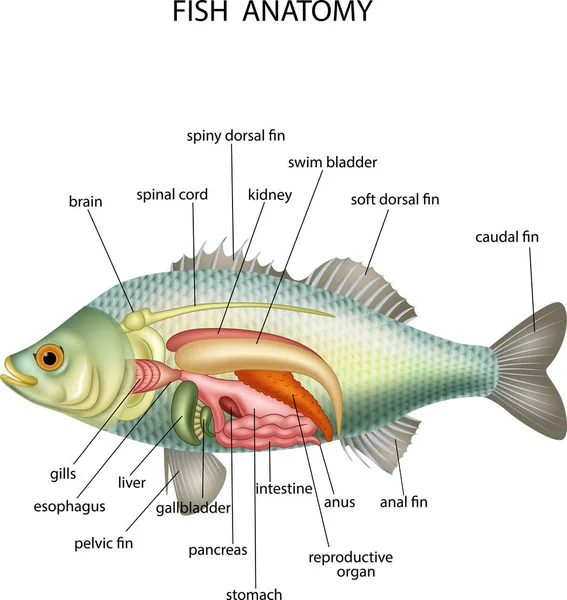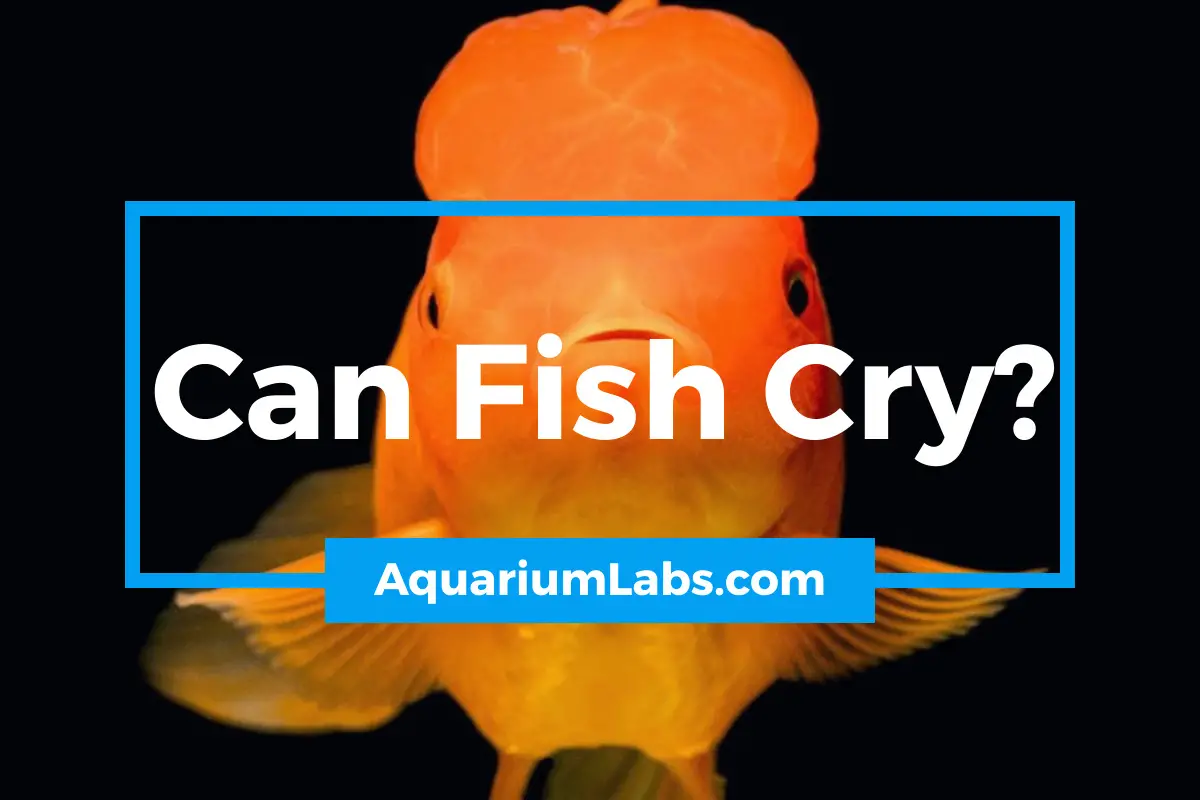There is a lot of emerging research on the inner world of fish. Fish can plan, form memories, recognize their owners, and more. But what does that depth of feeling mean? Do fish cry in response to feeling sad or lonely? Let’s look more into what fish can do with their eyes and feelings!
Do Fish Cry?
Since we cry when we feel sad or emotional, what about fish? Do fish cry when they are feeling emotional or are in pain?
Do Fish Produce Tears?
Fish eyes are very similar to those of mammals and other land animals. After all, we did evolve from underwater creatures. Since their eyes are constantly bathed in a watery medium, fish don’t need to produce tears.
The primary function of tears is to keep eyes from drying out. Therefore fish don’t have tear ducts or tear glands and cannot cry, leak, express pain using tears, or much else with their eyes. Fish don’t blink either since they don’t have eyelids.
However, fish can move their eyes. How much depends on the fish species. Some can hardly move their eyes at all, while others can roll them, shift them in different directions at once, and perform other advanced maneuvers!
Your pet fish is more likely to be in the “hardly moves their eyes” category, though Corydoras and a few others will “wink” to clean them. However, this wink is more of a sinking of the eye into the eye socket than an actual blink. Corydoras fishes lack eyelids just like any other catfish.
Fish and Emotions Tears
Humans are the only animals known that produce tears for emotional reasons. And while this is very obvious to us, its reasons still aren’t well understood. It is thought that there may be a shedding of stress hormones.
This seems to be the case since emotional tears in humans have higher levels of adrenocorticotropic hormone and leucine enkephalin, natural painkillers. So it is possible that emotional tears have a regulatory function in humans.
Do Fish Have Emotional Depth?
While fish do not cry or shed tears, is it, therefore, true to say that fish don’t have emotions of any kind. Well, this field of research is unfortunately still in its infancy. Fish memory is what scientists tend to concentrate more on because it is a lot easier to study. For example, recent research shows that fish can hold memories for up to 12 days rather than only 30 seconds, contrary to popular belief.
Identifying complex cognitive abilities in other animals becomes more difficult the further away we get from other mammals. But just because we don’t know how to identify intelligence and emotions in “simple creatures” does not mean that we should deny them the same mental complexity.
For more evidence, take a look at the work of Victoria Braithwaite. She is another major researcher in the world of animal emotions who has performed intensive research on fish.
In her book “Do Fish Feel Pain,” Dr. Braithwaite says, “I have argued that there is as much evidence that fish feel pain and suffer as there is for birds and mammals—and more than there is for human neonates and preterm babies.”
So just because fish can’t cry does not mean that fish express pain in ways that we can’t understand. They also seem to feel stress similarly and even can be treated with drugs that reduce stress. See here for more research by Dr. Daniel Cattaert from the University of Bordeaux.
Anatomy of a Fish’s Brain
Fish have a much smaller brain compared to many other animals. Compared to a bird or mammal, a fish brain is around 1/15th the size. This suggests that fish have a much more limited ability to learn, theorize, and feel higher-order sensations like emotions.

Birds and mammals grieve when they lose a companion, but fish don’t really seem to notice. They will often go back to eating within minutes of losing a tank mate or being made fearful.
Fish and the Cerebral Cortex
That said, mormyrid fish (elephant nose fish) and sharks have brain sizes comparable to birds and mammals. This suggests that they may have a wider range of experiences than other fish. But this growth is entirely in the cerebellum because fish don’t have a cerebral cortex. They do have simple structures that were the foundation that the cerebral cortex evolved from but no true cerebral cortex structure.
The cerebral cortex is responsible for higher-order conscious thinking, personality, emotional regulation, and other conscious processes in animals like us. On the other hand, the cerebellum is responsible for balance, motor functions, heartbeat regulation, breathing, and other mostly autonomic functions.
But like all animals, fish have an intricate nervous system where it is hard to draw simple conclusions. Emotions aren’t found exclusively in one region of the brain or another. They are formed as a complex interplay between many regions of the brain, including both the cerebral cortex and the cerebellum.
So just because fish don’t have a cerebral cortex does not mean they don’t feel emotions. It’s only proven that fish cannot cry and shed emotional tears since they don’t have tear glands or tear ducts.

Do Fish Feel Pain?
What is of just as much interest is whether fish feel pain or not. Pain in response to both emotional and physical stimuli. Once again, the jury is still out, and the research is ongoing. But just because fish don’t seem to have cerebral cortex regions in the brain where we find emotional pain responses in humans does not mean that fish, therefore, don’t feel pain.
As Phil Halper, a British researcher, explains: “Claiming that fish don’t feel pain due to the absence of these regions of the brain could be much like concluding they can’t swim because they lack arms and legs.” It’s too human-centric to make this claim about their mental capacity.
What About Crying Noises?
While your fish will not ever produce tears, it may make noises that can convince you fish cry. Many fish cry underwater using organs, fins, scales, and other structures to make noise! These communications have many functions, including echolocation, finding mates, and social display.
What Fish Species Make Crying Noises?
Some fish make crying noises that sound very much like a person crying. The Three Spined Toadfish is one suck fish, making a loud crying noise to attract mates. It will also sometimes cry if caught, possibly trying to get its captor to release it from the shock.
That said, very few fish can make a real crying sound. Many more can make grunts and other grinding sounds. Fish don’t have tear glands, and they also don’t have a voice box or mobile tongue like people. So how do fish “talk” out loud like this?
Some can vibrate their swim bladders using internal muscles to literally beat their inner gas balloon like a drum. These include the Drums in the family Sciaenidae. Other fish can grind their fins, scales, teeth, and other structures to make noise.
Believe it or not, it is not a quiet place under the waves. The sea is full of non-linear sounds from animals hunting, fleeing, and talking to each other.
Here is an amazing video from The Guardian with recordings of the noise that various species of fish, shrimp, and other animals make. Coral reefs are constantly bathed in the sounds of happy fish!
What About Marine Mammals?
We have fully established that while they do feel pain, fish cannot cry. But what about other marine animals? In particular, whales and dolphins? As social mammals like us humans, they are more likely to have deep emotions that are similar to what we experience. Do whales and dolphins cry?
It was discovered recently in 2007 that dolphins have spindle neurons in their cerebral cortex. Spindle neurons are special cells that help humans, and other social mammals understand how others think, socialize, and regulate many emotional responses. So they are deep feelers.
But do they cry when they feel sadness or pain?
When asked about emotional tears in other animals, Frederick A. King, the director of Yerkes Primate Center in Atlanta, reports that whales, dolphins, and seals secrete watery mucus. This helps protect their eyes from stinging saltwater. But they do not seem to produce emotional tears as we do.
His report is similar to what we’ve found when researching other findings. Whales and dolphins do secrete mucus-laden tears to protect their eyes. But no one has ever seen them crying, even though we know that dolphins can grieve and show other strong emotions.

Wrapping Things Up
So now we know the truth: the jury is still out on whether fish can feel sad, get depressed, feel lonely, and other emotions that make us cry. But fish have no ability to cry because fishes lack the structures to do so: tear ducts and tear glands. They are bathed in a watery medium, so their eyes never dry out, which is why we land animals have tears.
Just remember that even though we have superior intelligence, it is hard to determine how emotions look in fish. It is best to assume that they do and treat your fish very well while they are in your care!
Related FAQs:
- Why Do Fish Jump Out of the Tank?
- Why Do Fish Chase Each Other?
- What to Do With Unwanted Goldfish?
- What Are Female Fish Called?

